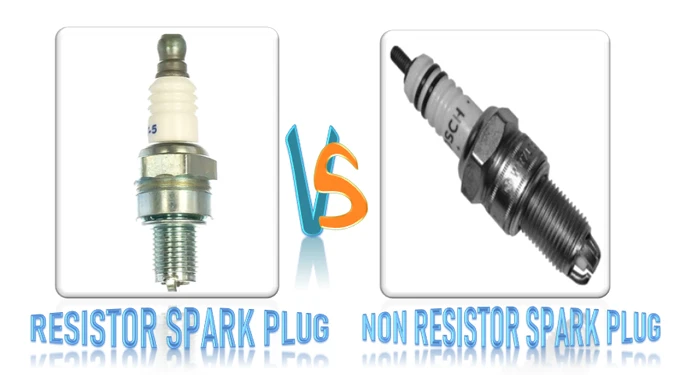Your car’s engine is a complex system of interconnected parts that all need to work together in order for your car to run.
One of the most important parts of your engine is the spark plug. A bad spark plug can lead to decreased fuel economy, decreased power, and even engine damage.
When choosing a spark plug, you must decide whether you want a resistor or a non-resistor plug. Both types have their own benefits and drawbacks.
We’ve put together a quick guide to help you choose the best spark plug for your car. Read on to learn more about resistor vs non resistor spark plugs.
What are Resistor and Non-Resistor Spark Plugs?
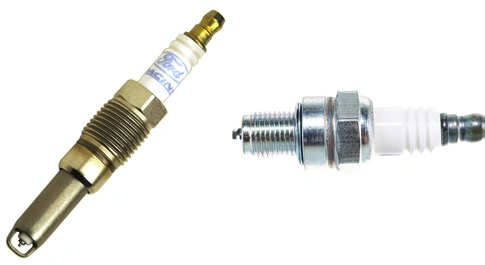
Resistor and Non resistor spark plugs are types of spark plugs that differ in the material used to create the resistive element. Resistor spark plugs use a ceramic or glass nose cone, while non-resistor spark plugs typically have steel or brass nose cone.
The type of spark plug you choose will affect the performance of your engine and how often you will need to replace your spark plugs.
Resistor spark plugs are designed to reduce electrical interference with electronic ignition systems. Non-resistor spark plugs do not have this feature and may cause radio interference or engine misfires.
Differences between a Resistor and a Non-Resistor Spark Plug
There are several differences between the resistor and non-resistor spark plugs:
Resistor wire: A resistor is a small ceramic or glass bead that is located in the spark plug’s tip. The purpose of the resistor is to suppress electrical interference.
Non-resistor wire: A Non resistor does not have a ceramic or glass bead. This type of spark plug does not offer any suppression of electrical interference.
Energy output: Resistor spark plugs typically have a lower energy output than non-resistor spark plugs. This means that they may not perform as well in high-performance applications.
Construction: Resistor spark plugs have a ceramic or glass nose cone that houses the resistive element. Non-resistor spark plugs have a steel or brass nose cone.
Performance: Resistor spark plugs are designed to reduce electrical interference with electronic ignition systems. Non-resistor spark plugs do not have this feature and may cause radio interference or engine misfires.
Durability: Resistor spark plugs are more resistant to heat and vibration than non-resistor plugs. This means that they will last longer and need to be replaced less often.
Advantages of Using a Resistor Spark Plug
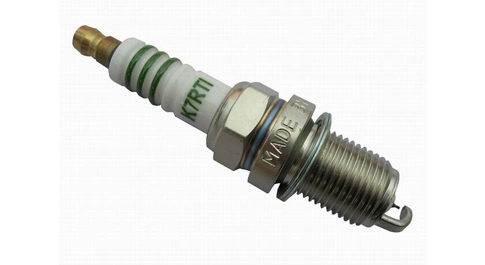
Here are some of the advantages of using a resistor spark plug:
1. Resistor spark plugs help reduce interference from electronic ignition systems.
2. They also help reduce the amount of static electricity that builds up on the plug, which can cause misfires.
3. Resistor spark plugs tend to last longer than non-resistor plugs because they don’t get as hot.
4. They also produce a more consistent spark, which can help improve engine performance.
5. Resistor plugs are less likely to cause radio interference than non-resistor plugs.
Disadvantages of Using a Resistor Spark Plug
There are also some disadvantages to using a resistor spark plug:
1. They cost more than non-resistor plugs.
2. Resistor plugs can sometimes be harder to find than non-resistor plugs.
3. Some engines may not run as well with resistor plugs, so it’s important to check with your vehicle’s manufacturer before switching to them.
4. Resistor plugs may not be necessary for all applications, so you may not need to use them unless you’re experiencing interference or other problems.
Advantages of Using a Non-Resistor Spark Plug
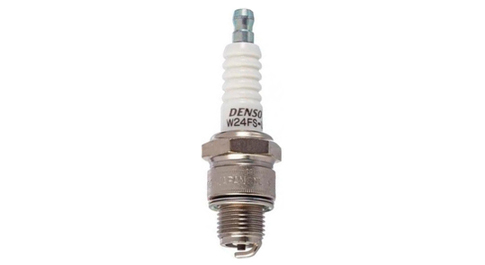
If you’re not experiencing any problems with your vehicle and don’t need to worry about interference, then you may want to stick with a non-resistor spark plug. Here are some of the advantages of using a non-resistor spark plug:
1. Non-resistor plugs are less expensive than resistor plugs.
2. They’re more widely available than resistor plugs.
3. Some engines may run better with non-resistor plugs.
4. Non-resistor plugs don’t need to be replaced as often as resistor plugs.
5. They’re less likely to cause radio interference than resistor plugs.
Disadvantages of Using a Non-Resistor Spark Plug
There are also some disadvantages to using a non-resistor spark plug:
1. They can cause interference with electronic ignition systems.
2. They can build up static electricity, which can cause misfires.
3. They tend to get hotter than resistor plugs, which can shorten their lifespan.
4. They may not produce a consistent spark, which can affect the engine performance.
5. They’re more likely to cause radio interference than resistor plugs.
Choosing the Right Spark Plug for Your Car
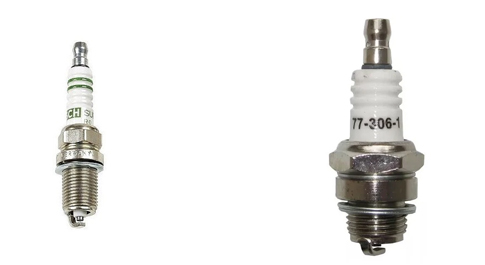
When choosing a spark plug, you must consider the type of engine you have and your vehicle’s operating conditions.
If you have a high-performance engine or drive in dusty or wet conditions, you may need a resistor plug to prevent interference and misfires.
If you have a less powerful engine or drive in milder conditions, you may be able to use a non-resistor plug without any problems.
You should also check with your vehicle’s manufacturer to see what type of plug they recommend for your car.
Things to Keep in Mind
There are a few things to keep in mind when choosing a spark plug:
Resistance: All plugs have some resistance level, but there are two types of spark plugs on the market- resistor and non-resistor. Resistor plugs have a small piece of ceramic material inside them that helps to suppress electrical noise. Non-resistor plugs do not have this feature.
Thread size: The thread size is the diameter of the threading on the spark plug, and it must match the diameter of the threading in your vehicle’s engine.
Tip configuration: The tip configuration is the shape of the spark plug’s firing end, and it must match the firing end of the plugs that are currently in your engine.
Hex size: The hex size is the width of the spark plug across the flats, and it must match the wrench that you will use to install or remove the plugs.
Gap: The gap is the distance between the firing end of the spark plug and the ground electrode, and it must be set to the specific gap for your vehicle.
Now that you know the basics of spark plugs, choosing the right plug for your car is time. Consider the type of engine you have, the operating conditions of your vehicle, and the recommendations of your vehicle’s manufacturer.
With a little bit of research, you’ll be able to find the perfect plug for your car.
Final Thoughts
Spark plugs are an important part of your vehicle’s ignition system. Resistor plugs are designed to reduce interference and static electricity, while non-resistor plugs are less expensive and more widely available.
The right type of spark plug for your car depends on the type of engine you have and your vehicle’s operating conditions. You should check with your vehicle’s manufacturer to see what type of plug they recommend.

